SPECIAL ISSUE- 1, PUNE RESEARCH WORLD (ISSN 2455-359X) JIF 2.54 (CRYSTAL 2016)
1.1 SPECIAL
Area of Article : ALL
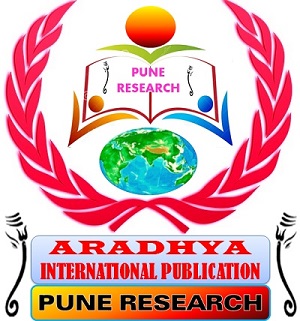
SPECIAL ISSUE- 1, PUNE RESEARCH WORLD (ISSN 2455-359X) JIF 2.54 (CRYSTAL 2016)
1.1 SPECIAL

SPECIAL ISSUE- 1, PUNE RESEARCH WORLD (ISSN 2455-359X) JIF 2.54 (CRYSTAL 2016)
S 1.1 WORLD
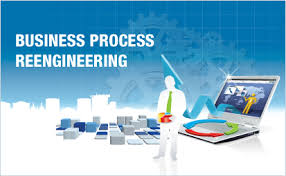
Business Process Reengineering increases enterprise's chance to survive in competition among organizations , but failure rate among reengineering efforts is high, so new methods that decrease failure, are needed, in this paper a business process reengineering method is presented that uses Enterprise for modeling the current system and its goal is to improve analyzing current system and decreasing failure rate of BPR, and cost and time of performing processes, In this method instead of just modeling processes, processes with their : interactions and relations, environment, staffs and customers will be modeled in enterprise ontology. Also in choosing processes for reengineering step, after choosing them, processes which, according to the enterprise, has the most connection with the chosen ones, will also be chosen to reengineer, finally this met is implemented on a company and As-Is and To-Be processes are simulated and compared by Report and Simulation Experiment.
Keywords: Business Process Reengineering, Enterprise, modeling
SPECIAL ISSUE- 1, PUNE RESEARCH WORLD (ISSN 2455-359X) JIF 2.54 (CRYSTAL 2016)
S 1.2 WORLD
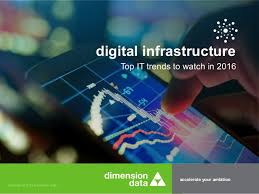
Human–computer interaction researches the design and use of computer technology, focused on the interfaces between people and computers. Humans interact with computers in many ways; and the interface between humans and the computers they use is crucial to facilitating this interaction. Human–computer interaction studies the ways in which humans make, or don't make, use of computational arti facts, systems and infrastructures. The user interacts directly with hardware for the human input and output such as displays, e.g. through a graphical user interface. The user interacts with the computer over this software interface using the given input and output (I/O) hardware. In recent years, there has been an explosion of social science research focusing on interactions as the unit of analysis. Much of this research draws from psychology, social psychology, and sociology.. CHI is a large conference, with thousands of attendants, and is quite broad in scope. It is attended by academics, practitioners and industry people, with company sponsors such as Google, Microsoft, and PayPal.
Keywords: Human Computer Interaction, Hardware, Peoples
SPECIAL ISSUE- 1, PUNE RESEARCH WORLD (ISSN 2455-359X) JIF 2.54 (CRYSTAL 2016)
S 1.3 WORLD
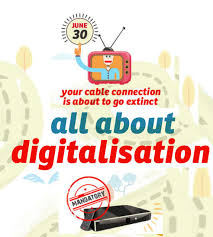
Digital India programme is full of happenings and it has gained good coverage in national and international media too. Objective of this report is to perform a reality check on the status of Digital India. This report contains information collected from newspapers, journals, government/non-government sources and third party sites (External Sites). This research is not done for any commercial purpose; it is intended to provide relevant facts and information related with Digital India. It’s a Digital India encyclopaedia that covers different aspects of Digital India programme. This report will help you in understanding the pace and direction in which Digital India programme is moving. Our Prime Minister used to say that “21st century is the century of knowledge” and I believe that this report will help you in becoming a knowledge citizen. Digital India was launched by the Prime Minister of India Shri. Narendra Modi on 2 July 2015 - with an objective of connecting rural areas with high-speed Internet networks and improving digital literacy.Digital India consists of three core components. These include: The creation of digital infrastructure, delivery of services digitally, literacy. In this study we try to bring out various steps taken to digitalise India speedily.
Keywords: Digital India, Digital Infrastructure, Knowledge, Digital Literacy
SPECIAL ISSUE- 1, PUNE RESEARCH WORLD (ISSN 2455-359X) JIF 2.54 (CRYSTAL 2016)
S 1.4 WORLD

With the world in the midst of a social media revolution, it is more than obvious that social media like Facebook, twitter, whatsapp, instagram, telegram, MySpace, Skype, Viber, etc., are used extensively for the purpose of communication. One of the most important advantages of the use of social media is the online sharing of knowledge and information among the different groups of people. This online sharing of information also promotes the increase in the communication skills among the people. Social media have the potential to fundamentally change the character of our social lives, both on an interpersonal and a community level.
Keywords: Social Media, Consumers, Marketing.
SPECIAL ISSUE- 1, PUNE RESEARCH WORLD (ISSN 2455-359X) JIF 2.54 (CRYSTAL 2016)
S 1.5 WORLD
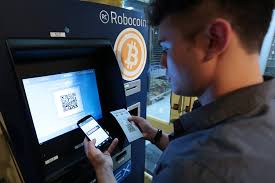
Digital is an unstoppable force that is redefining the financial services sector. Those institutions that know instantly what their customers and employees want can stay one step ahead of competitors. Thinking about digital strategically, and working with partners that can deliver innovation, will be key factors in long-term success. Financial services industry as a driver of economic growth. Deep capital markets and strong financial institutions give consumers easy ways to save, invest, borrow and plan for their future. Enterprises and small businesses, in turn, depend on financial institutions to raise capital for growth, efficiency, and infrastructure expansion. This cycle of saving, investing and lending is crucial for emerging economies like India to sustain economic growth. The government and the RBI who have been experimenting with various initiatives, including Jan Dhan Yojana, creation of payment banks, and Rupay to enable domestic card payments systems among other initiatives. But policy alone cannot deliver the promise of financial inclusion. Technology-led innovation in financial services is needed to enable rapid, large-scale, and positive change.
Keywords: Digital, financial services, economic growth, savings.
SPECIAL ISSUE- 1, PUNE RESEARCH WORLD (ISSN 2455-359X) JIF 2.54 (CRYSTAL 2016)
S 1.6 WORLD
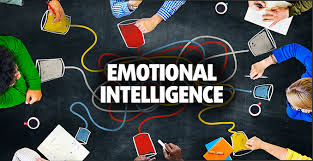
The
use of emotional intelligence in the workplace can benefit every faculty member
(Professor). Less conflict and fewer hurt feelings lead to a more inspiring and
productive workplace. For most people, emotional intelligence (EI) is more
important than one’s intelligence (IQ) in attaining success in their lives and
careers. As individuals our success and the success of the profession today
depend on our ability to read other people’s signals and react appropriately to
them. Therefore, each one of us must develop the mature emotional intelligence
skills required to better understand, empathize and negotiate with other people
— particularly the people with disability. Keeping the same in mind, the
present study is based much on literature and a brief analysis of 50 Professors
in Coimbatore and makes an attempt to study the role of emotional intelligence
in competent teaching and suggest emotional quotient as a considerable
predictor to make the workplace accessible.
Keywords: Emotional Intelligence, Professors, Teaching Competency, College Students.
SPECIAL ISSUE- 1, PUNE RESEARCH WORLD (ISSN 2455-359X) JIF 2.54 (CRYSTAL 2016)
S 1.7 WORLD

The application of e-commerce in supply chain management
(SCM) has gained significant interest in researchers and academics in recent
years since e-commerce and SCM are critical success factors. A case study on
Dell Inc. was chosen because Dell Inc. has survived the recent economic
slowdown since March 2016. This phenomenon was the result of Dell’s success
story demonstrated a real case of effective integration and implementation of
SCM and e- commerce. Data was obtained via Web browsing and e-mail. This paper
first discussed various activities that involved in supply chain management
process; information, products, and financial flows. It then illustrated the
ways that e-commerce to be integrated into supply chain management to gain
competitive advantages in dynamic business environment. Findings showed
e-commerce has the capacity to have an application on the physical, information
and financial flows of supply chains. This paper is origin and empirical study
that would be a contribution to business practitioners and academia.
Keywords : E-Commerce, Application , Supply Chain Management.
SPECIAL ISSUE- 1, PUNE RESEARCH WORLD (ISSN 2455-359X) JIF 2.54 (CRYSTAL 2016)
S 1.8 WORLD
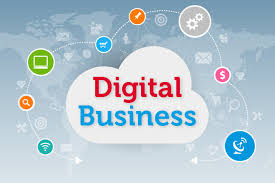
Digitalization
in the business world aids to drive more customized and personalized dealings
with all stakeholders. This study aims to predict the variables which influence
the business concern for digital transformation. Proposed research model in
this study helps to analyze the process of digital transformation. It is
revealed that the transformation was dictated by the personal, environmental,
and firm characteristics of the enterprises. The study therefore urgently
recommends formalization of elements of reactive strategic management and the
personal factors in medium firm curricula.
Keywords: Digitalization, Strategy formulation, Environmental factors, Valuation creation
SPECIAL ISSUE- 1, PUNE RESEARCH WORLD (ISSN 2455-359X) JIF 2.54 (CRYSTAL 2016)
S 1.9 WORLD
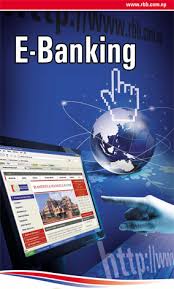
The Indian banking industry is changing rapidly, particularly as a result of a variety of services offered to customers, notably with the ease of accessing them at the click of a mouse. Electronic banking (e-banking), also known as Internet banking, is defined as the automated delivery of new and traditional banking products and services directly to customers through electronic, interactive communication channels. The convenience of accessing bank accounts at one’s place encourages usage of Internet banking. This paper deals with the adoption of e-banking services and factors influencing for the adoption of e-banking services.
Keywords: Digital Banking, E-Banking, Digital etc.
SPECIAL ISSUE- 1, PUNE RESEARCH WORLD (ISSN 2455-359X) JIF 2.54 (CRYSTAL 2016)
S 1.10 WORLD
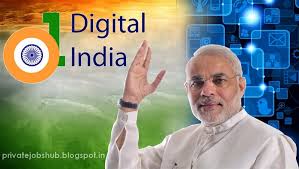
The digital world that we live in today is the outcome of several innovations and technology advances. Today, every nation wants to be fully digitalized that will empower society in a better manner. The 'Digital India' programme, an initiative of honorable Prime Minister Mr.Narendra Modi, will emerge new progressions in every sector and generates innovative endeavors for geNext. The motive behind the concept is to build participative, transparent and responsive system. This will provide all services electronically and promote digital literacy. Digital Technologies which includes the concept of cloud computing and mobile applications have emerged as the catalysts for express economic growth and citizen empowerment. Companies all over the world desire to invest in Digital India- the 21st century India, as a growth opportunity. The objective of this paper is to have a vision on the Digital India campaign where technologies and connectivity will come together to make an impact on all aspects of governance and improve the quality of life of citizens.
Keywords: Digital India Programme, Methodology, Scope, Vision and Pillars of Digital India Programme.
SPECIAL ISSUE- 1, PUNE RESEARCH WORLD (ISSN 2455-359X) JIF 2.54 (CRYSTAL 2016)
S 1.11 WORLD

Major
changes have occurred within the computer revolution; changes which encompass
all aspects of its role. These are not just quantitative in nature, such as
exponential increases in processing power and storage capacity, but are more
fundamental, pointing not only to the function of computer technology, but its
emerging diversity both in terms of its form and place in the world. Computers
are now embedded within a huge range of materials and artifacts, and take on
roles in almost all aspects of life. People and lifestyles are altering. These
changes are sometimes spurred on by technology, but other times work in
parallel or provoke technological innovation. There is a global scale of change
which is taking place hand in hand with new technologies. This gives rise to
tensions between individuals and governments, and between globalization and
cultural diversity. This paper extends existing Information
Systems perspectives towards Human-Computer Interaction (HCI) to consider HCI
within Digital Infrastructures (DI) – heterogeneous and evolving systems
comprising both IT and its design and user communities.
Keywords- Computer Revolution, Technology, Digital Infrastructure, Information Systems
SPECIAL ISSUE- 1, PUNE RESEARCH WORLD (ISSN 2455-359X) JIF 2.54 (CRYSTAL 2016)
S 1.12 WORLD
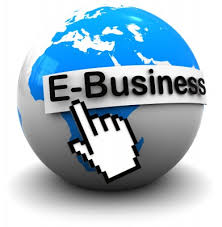
E-Business
follows all its business day today activities through internet. E-Business systems provide both business information like
product prices and quantities and perform other business actions like buying,
selling and negotiation.Cloud
computing technique in the field of information technology is a booming area,
which supports e-business. It is
significant to value the integration between these two. This paper focuses on
this and the supportive framework for the cloud for e-business management is
focused for current trends. The different layers of cloud architecture for
e-business are specified. For any
technology, there may be some challenges for implementing it. These challenges
are also addressed.
Keywords: Cloud Computing, Cloud Framework, E-Business
SPECIAL ISSUE- 1, PUNE RESEARCH WORLD (ISSN 2455-359X) JIF 2.54 (CRYSTAL 2016)
S 1.13 WORLD

E-cash is a payment system intended and implemented for making purchases over open networks such as the Internet. Require of a payment system which provides the electronic transactions are emergent at the similar moment that the exploit of Internet is budding in our daily life. Present days electronic payment systems have a major dilemma, they cannot switch the security and the user’s secrecy and at the same time these systems are secure on the cost of their users ambiguity. This paper shows the payment protocols for digital cash and discusses how a digital cash system can be fashioned by presenting a few of the recent day’s digital cash systems in details. We also offer a comparison and determine them mutually to see which one of them fulfils the properties for digital cash and the mandatory security level.
Keywords: E-cash; Payment Protocol; Double Spending; Blind Signature.
SPECIAL ISSUE- 1, PUNE RESEARCH WORLD (ISSN 2455-359X) JIF 2.54 (CRYSTAL 2016)
S 1.14 WORLD

Banks have had to bear high costs to provide financial services to the poor. Market segmentation, low technological development, informality, and weak regulation increase the costs of doing business. While electronic banking can provide a number of benefits for customers and new business opportunities for banks, it exacerbates traditional banking risks. Even though considerable work has been done in some countries in adapting banking and supervision regulations, continuous vigilance and revisions will be essential as the scope of e-banking increases. In particular, there is still a need to establish greater harmonization and coordination at the international level. Moreover, the ease with which capital can potentially be moved between banks and across borders in an electronic environment creates a greater sensitivity to economic policy management. To understand the impact of digital-banking on the conduct of economic policy, policymakers need a solid analytical foundation. Without one, the markets will provide the answer, possibly at a high economic cost. In developed markets now carries a Smartphone, and few doubt that banks will rely increasingly on digital channels to serve the fast-growing population of consumers who rely on multiple devices to conduct daily business online. Where smartphones account for more than half of mobile subscriptions, one-third of consumers are using their phones to make payments. Unfortunately for banks, many of these payments are transacted through mobile apps controlled by online-payments specialists and digital merchants.
Keywords: Electronic banking, Financial Services, Technology, Banking Customer Performance.
SPECIAL ISSUE- 1, PUNE RESEARCH WORLD (ISSN 2455-359X) JIF 2.54 (CRYSTAL 2016)
S 1.15 WORLD
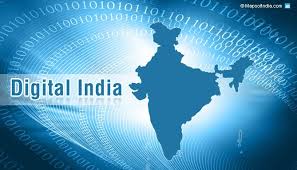
The E-Commerce is prospered and stands for booming growth in Rural India. Their success depends on the understanding of the market, quantity of consumers and offering various features. This is an impact of digital India in the future of E-Commerce in Rural India; represent the various opportunities for vendors, consumers, E-Commerce Industries and factors influencing trust in rural Indians. We found that the Overall E-Commerce will increase drastically coming years in the emerging market. While rural area availability of internet or broadband is lower as compare to urban area but Government’s dream project Digital India will control or fixed this gap which increases the mass of consumers for E-Commerce world through spreading business using social commerce (Face book Commerce, Twitter Commerce), mobile commerce etc. with adopting Digital India project features like creation of digital infrastructure and digital literacy. Combination of E-Commerce and Digital India project make easier contact can be made to anywhere in the world in seconds. By online trading, businesses open themselves in global market place.
Keywords: E-Commerce, Digital, Internet Access, Government, Growt
SPECIAL ISSUE- 1, PUNE RESEARCH WORLD (ISSN 2455-359X) JIF 2.54 (CRYSTAL 2016)
S 1.16 WORLD
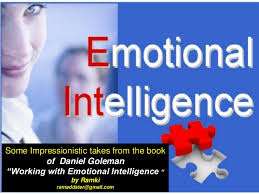
The nursing profession demands that the nurse, in
the process of care, has to interact with the patients, the medical fraternity
and the health care workers constantly. Hence, “Nurse-Patient Interaction” is
the pulse of the nursing practice. This interaction is not just conversation.
It is a complex process that involves nurse perception, understanding of the
patient emotions and utilization of the perceptions to manage patient
situations towards the goal of effective patient care. Emotional intelligence
plays a major role in doing the same. Emotional Intelligence is a measure of an
individual’s capability and requires tools to assess this capability.
Developing emotional intelligence requires that we unlearn old habits of
thought, feeling, and action that are deeply ingrained, and grow new ones. Such
a process takes motivation, effort, time, support, and sustained practice. The
present study is focused on two major objectives namely: to study the
significant impact of Emotional intelligence on behavior of nurses and to
analyze the role of Emotional intelligence in work-related outcomes.
Keywords: Emotional Intelligence, Nursing, Patient, Services.
SPECIAL ISSUE- 1, PUNE RESEARCH WORLD (ISSN 2455-359X) JIF 2.54 (CRYSTAL 2016)
S 1.17 WORLD

Technology
has transformed how we work, communicate and travel. In contrast, modern
digital technology has not yet transformed financial services. Open data is the
key to change in this sector of the economy. The time has come for the
financial services industry to join the open data revolution. Open data means
interoperability of digital information to increase its usability and
accessibility. When open data is brought to private sector, moreover, one of
the benefits will be information portability for consumers. Today advances in
technology have made it easier for customers of banks and insurance companies,
among other financial institutions, to share their information with others.
Rather than storing key documents in shoe boxes and file folders, consumers and
small businesses can pass along digital online and banking credentials. This happy story of progress however is far
from complete because of concerns around privacy and security, and the intimate
choke points on data sharing.
Keywords: Finance, Digital finance, Financial Technology
SPECIAL ISSUE- 1, PUNE RESEARCH WORLD (ISSN 2455-359X) JIF 2.54 (CRYSTAL 2016)
S 1.18 WORLD
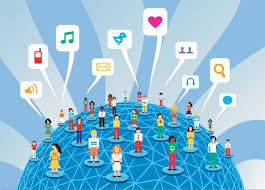
Digital literacy involves more than
the mere ability to use software or operate a digital device; it includes a
large variety of complex cognitive, motor, sociological, and emotional skills,
which users need in order to function effectively in digital environments. The
tasks required in this context include, for example, “reading” instructions
from graphical displays in user interfaces; using digital reproduction to
create new, meaningful materials from existing ones; constructing knowledge
from a nonlinear, hyper textual navigation, evaluating the quality and validity
of information; and have a mature and realistic understanding of the “rules”
that prevail in the cyberspace.
Keywords: Digital Era, Survival Skills, Digital Literacy, etc.
SPECIAL ISSUE- 1, PUNE RESEARCH WORLD (ISSN 2455-359X) JIF 2.54 (CRYSTAL 2016)
S 1.19 WORLD

Social
Anxiety Disorder (social phobia) is the third largest mental health care
problem in the world today. Social anxiety is the fear of social situations
that involve interaction with other people. It is the fear and anxiety of being
negatively judged and evaluated by other people. Human–computer interaction (commonly referred to as
HCI) researches the design and use of computer technology, focused on the
interfaces between people (users) and computers. New designs of
technologies and systems APPEAR more and more every day and the research in
this area has been growing very fast in the last few decades. This paper
discusses the use of chatbots as a personal treatment option for patients diagnosed
with social anxiety disorder at the comfort of their homes without having to
talk to a psychiatrist on a continuous basis. Therefore, chatbots, can be
considered as an alternative. Such programs can give an initial push towards
the right direction before patients can recover completely on their own, with
the advantages of privacy, cost effectiveness, having a record of tasks
completed and monitoring progress.
SPECIAL ISSUE- 1, PUNE RESEARCH WORLD (ISSN 2455-359X) JIF 2.54 (CRYSTAL 2016)
S 1.20 WORLD
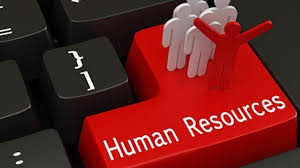
More
and more organizations have been replacing face-to-face human resource
management activities with electronic human resource management, E-HRM for
short. E-HRM facilitates the HR function to create dynamic and operational
capabilities and contributes greatly on HRM effectiveness. This paper
elaborates on E-HRM in detail on the following aspects: Introduction of E-HRM,
types of E-HRM, Functions of E-HRM ,role of E-HRM, level, nature of E-HRM,
advantages and disadvantages E-HRM of determinants of attitude towards and it
is expected to help people understand E-HRM more comprehensively and
systematically. Great changes have been brought to our economy, society, and
culture with the rapid development of science and technology, especially the
usage of Internet and computer technology.
Key Words: Human Resource Management, Challenges, Digital Era.
SPECIAL ISSUE- 1, PUNE RESEARCH WORLD (ISSN 2455-359X) JIF 2.54 (CRYSTAL 2016)
S 1.21 WORLD
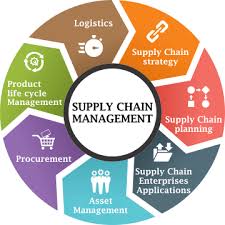
According to study the basic principles, structure model and its advantages of supply chain management under E-Marketing environment, obtaining and analyzing some problems, including light sense, weak core competitive force, lack of cooperation and low level of informatization in the application of supply chain management under E-Marketing environment. And at the same time, put forward corresponding terms of settlement.
Keywords: Supply Chain Management, E-Marketing Environment, Problems, Settlements.
SPECIAL ISSUE- 1, PUNE RESEARCH WORLD (ISSN 2455-359X) JIF 2.54 (CRYSTAL 2016)
S 1.22 WORLD

Supply-chain management has been defined as the "design, planning, execution, control, and monitoring of supply chain activities with the objective of creating net value, building a competitive infrastructure, leveraging worldwide logistics, synchronizing supply with demand and measuring performance globally. Supply Chain Management involves coordinating, scheduling and controlling procurement, production, inventories and deliveries of products and services to customers. The SCM is the backbone of E-commerce, a very critical component of E-commerce. Supply Chain Efficiency means having the right product at the right place at the right time, can save money/reduce costs, and can enhance cash utilization. The management of the flow of goods and services involves the movement and storage of raw materials, of work-in-process inventory, and of finished goods from point of origin to point of consumption. Interconnected or interlinked networks, channels and node businesses combine in the provision of products and services required by end customers in a supply chain.
Keywords: Supply Chain Management, Interlinked Networks, Cash Utilization, E-Commerce.
SPECIAL ISSUE- 1, PUNE RESEARCH WORLD (ISSN 2455-359X) JIF 2.54 (CRYSTAL 2016)
S 1.23 WORLD

Computer is a term expanded as “Common
Operating Machine Particularly Used for Trade Educational and Research”. It is
a machine used to perform various operations in Trade and educational field. As
Trade and Educational sectors have grown, similarly technical use of computers
also has grown in these sectors. Earlier way (i.e, manual) of performing
business is not efficient so operations changed from manual to computer. An
assortment of Computer Technology have grown like Accounting Software, Business
Intelligence, Business management, Customer management, Resource management,
Communications Software etc to facilitate the process efficiently. Accessing
and securing the data are necessary for software to maintain its
confidentiality.
SPECIAL ISSUE- 1, PUNE RESEARCH WORLD (ISSN 2455-359X) JIF 2.54 (CRYSTAL 2016)
S 1.24 WORLD

Pharmaceutical companies are running hard to keep pace with changes brought about by digital
technology. Mobile communications, the cloud, advanced analytics, and the
Internet of Things are among the innovations that are starting to transform the
healthcare industry in the ways they have already transformed the media,
retail, and banking industries. Pharma executives are well aware of the disruptive
potential and are experimenting with a wide range of digital initiatives. Yet
many find it hard to determine what initiatives to scale up and how, as they
are still unclear what digital success will look like five years from now. This
article aims to remedy that. We believe disruptive trends indicate where
digital technology will drive the most value in the pharmaceutical industry,
and they should guide companies as they build a strategy for digital success.
Keywords: Digital Success, Pharmaceutical Industry, Digital Era, etc.
SPECIAL ISSUE- 1, PUNE RESEARCH WORLD (ISSN 2455-359X) JIF 2.54 (CRYSTAL 2016)
S 1.25 WORLD

In this paper, we would explore how e-commerce, the World Wide Web in particular, is distressing the real estate industry. Real estate is a promising set up to study e-commerce because it is an information-intensive and information-driven industry. The transactions are based on high value and asset-specificity with many market-intermediaries like agents and brokers who connect buyers and sellers rather than buying or selling themselves and experiencing an on-going IT related changes. We analyze the real estate transaction to suggest where IT might change the process of selling or buying a house and discuss several current ventures in this area. This analysis suggests that thee-commerce is eroding the long-enjoyed information monopoly of real-estate agents and these applications have the potential to dramatically change the current practices in the real-estate industry, including the elimination of agents.
Keywords: Property Hunt, Real Estate, Electronic Commerce, World Wide Web, Electronic Markets, E-Commerce
SPECIAL ISSUE- 1, PUNE RESEARCH WORLD (ISSN 2455-359X) JIF 2.54 (CRYSTAL 2016)
S 1.26 WORLD
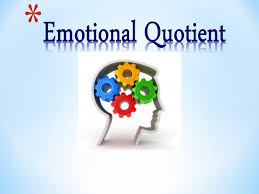
Today’s
fast changing technology has paved way for quicker, convenient and at the same
time a reliable means of communication and thereby improving the commercial
transactions. The usage of smart phones
makes the trading activities a simpler job. Thanks to the new innovations in
Information Technology Sector which has given this advantage to the new
generation consumers and marketers which
makes them to save their much valuable time and energy. The marketers
are able to reach a wider range of consumers without any geographical limits.
The consumers are provided with a wide range of products and the product
information is also available immediately to help their decision making. This
is indeed a boon to the Commerce industry.
Keywords: Digital Era, Emotional Quotient, Information Age, etc.
SPECIAL ISSUE- 1, PUNE RESEARCH WORLD (ISSN 2455-359X) JIF 2.54 (CRYSTAL 2016)
S 1.27 WORLD

Digital revolution is a blooming terminology which always makes people connected in. Technology has altered the traditional human recognition. How to get our self in the environment with differential perspectives are the challenges of any business man. New concepts are formerly accomplished through more conventional approaches are becoming increasingly difficult to manage. India is also coming up with adapting digital revolution to make it a developing country. This paper identifies few strategies which could transform a business unit by framing new core competencies and how to have a balance between technology, efficiency and humanity.
Keywords: Digital, Business, Communication, Strategies.
SPECIAL ISSUE- 1, PUNE RESEARCH WORLD (ISSN 2455-359X) JIF 2.54 (CRYSTAL 2016)
S 1.28 WORLD

The
advent of the information society is marked by the explosive penetration of
information and communication technologies in all aspects of life and by a
related fundamental transformation in organizations and society. Digital era
can be seen as the development of an evolutionary system in which knowledge
turnover is not only very high, but also increasingly out of the control of the
humans, making it a time in which our lives become difficult to manage without
digitalization. While there are many useful ways of describing and discussing
the digital era, explanations of its existence are lacking. The digital era is
characterized by technology which increases the speed and breadth of knowledge
turnover within the economy and society. Evolutionary theory has stated that
sustainability relies on knowledge turnover.
In parts of the system which are relatively stable, knowledge turnover
is low and new variation when produced is rarely retained. Mixing and matching
rates of knowledge turnover makes for a dynamic but ever-lasting world. For example, in the second generation Internet, ‘the
semantic web’, functionality, which understands meaning, replaces the search
function of unknowingly matching words, which often have multiple meanings. In
time, within this version of the Internet, software agents will exchange
knowledge. This paper explains why it is so called digital era, socio-economic
transformational functions, knowledge distribution differentials, effects of
digital era in the economy, the impact of digital era in the social and economy
and the expected transformation in future.
Keyword: Digital Era, Social Transformation, Economic Transformation etc.
SPECIAL ISSUE- 1, PUNE RESEARCH WORLD (ISSN 2455-359X) JIF 2.54 (CRYSTAL 2016)
S 1.29 WORLD

Most organisations are undergoing some form of
digital transformation. 2016 is undoubtedly the dawn of the first ‘digital
decade’. Given its incredible transformative potential, it’s no surprise that
business leaders are viewing digital innovation and development as key drivers
of future success. But with the real world benefit comes the inevitable hype
and the tendency to call everything new ‘digital’. The Guardian defines digital
in its broadest sense as “any technology that connects people and machines with
each other or with information”. We can expand on that by identifying the four
technologies at the heart of today’s digitally connected world: Social, mobile,
analytics and cloud (together, they are commonly referred to as
SMAC).Meanwhile, McKinsey & Co believes that digital is about “unlocking
growth now”, and should really be seen a way
of doing things. For instance, it’s a way of establishing new connections with
customers, strengthening business models, generating new revenue streams,
cutting costs, increasing profitability, and creating new market streams.
Keywords - Attributes Digital, Models, Marketing Strategy
SPECIAL ISSUE- 1, PUNE RESEARCH WORLD (ISSN 2455-359X) JIF 2.54 (CRYSTAL 2016)
S 1.30 WORLD
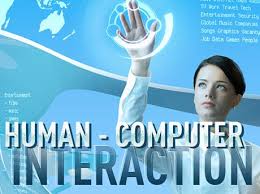
The intention of this paper is to
provide an overview on the subject of Human-Computer Interaction. The overview
includes the basic definitions and terminology, a survey of existing
technologies and recent advances in the field, common architectures used in the
design of HCI systems which includes unimodal and multimodal configurations,
and finally the applications of HCI. This paper also offers a comprehensive
number of references for each concept, method, and application in the HCI.
Keywords: Human-Computer Interaction, Multimodal HCI, Ubiquitous Computing
SPECIAL ISSUE- 1, PUNE RESEARCH WORLD (ISSN 2455-359X) JIF 2.54 (CRYSTAL 2016)
S 1.31 WORLD
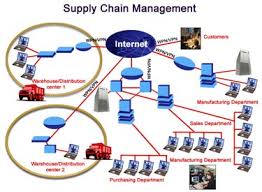
The concept of supply chain management (SCM) has occupied serious research attention in recent years. This concept goes beyond intra-organizational boundaries to achieve a greater value of the entire supply chain network. Supply Chain Management means coordinating, scheduling and controlling procurement, production, inventories and deliveries of products and services to customers. The SCM is the backbone of E-commerce, a very critical component of E-commerce. Supply Chain Efficiency means having the right product at the right place at the right time, can save money/reduce costs, and can enhance cash utilization.
Keywords: Electronic, SCM, E-Market, Management.